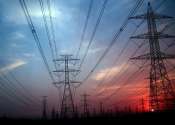Engineered cyanobacteria uses electricity to turn carbon dioxide into fuel
A combined team of researchers from the National Renewable Energy Laboratory and Miami University, has developed an engineering process that allows cyanobacteria to use electricity to turn carbon dioxide into ethylene or ...









